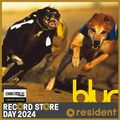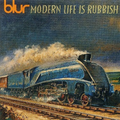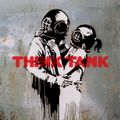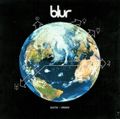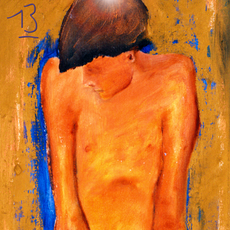other titles...
- Tender
- Bugman
- Coffee & TV
- Swamp Song
- 1992
- B.L.U.R.E.M.I.
- Battle
- Mellow Song
- Trailerpark
- Caramel
- Trimm Trabb
- No Distance Left to Run
- Optigan 1 (instrumental)
Blur
13 (repress)
PLG UK Frontline
13 is the sixth studio album by English alternative rock band Blur, released on 15 March 1999.
Continuing the stylistic shift away from the Britpop sound of the band's early career, 13 explores experimental, psychedelic and electronic music. Recording took place from June to October 1998 in London and Reykjavík. The album marks a departure of the band's longtime producer, Stephen Street, with his role being filled by William Orbit, who they had chosen after the release of the remix album, Bustin' + Dronin' (1998). Relationships between the band members were reported to be strained, with members frequently missing from the sessions. Lyrically, the album is significantly darker and more innovative than Blur's previous efforts, being heavily inspired by Damon Albarn's breakup with long-term girlfriend, Justine Frischmann, which followed an increasingly strained relationship. This album was the last in over a decade to feature the original line-up as Coxon left the band during the sessions of their next album Think Tank (2003), before returning for The Magic Whip (2015). 13 was released on 15 March 1999 and entered the UK Albums Chart at number one, making it Blur's fourth consecutive studio album to reach the top spot. The album was later certified Platinum. 13 also reached number one in Norway and charted within the top 20 in many other countries. The album produced three singles – "Tender", "Coffee & TV" and "No Distance Left to Run" – which charted at number 2, number 11 and number 14 respectively on the UK Singles Chart. 13 met with favourable reviews and received a nomination for the Mercury Prize, as well as for Best Album at the 2000 NME Awards.
















